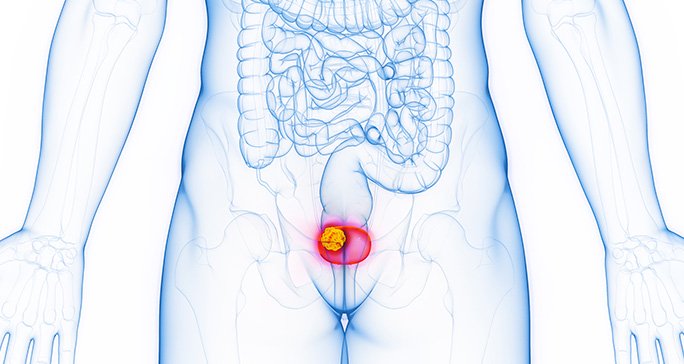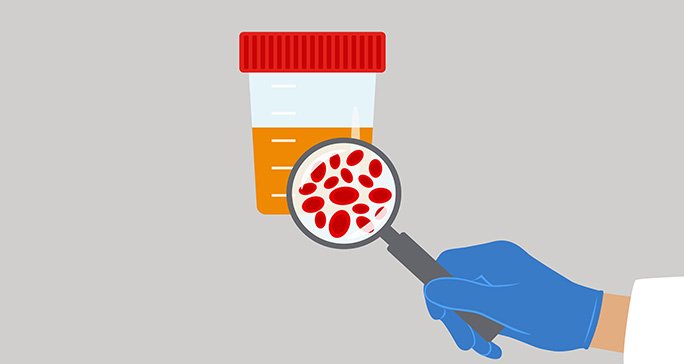- Diseases
- Acoustic Neuroma (14)
- Adrenal Gland Tumor (24)
- Anal Cancer (66)
- Anemia (2)
- Appendix Cancer (16)
- Bile Duct Cancer (26)
- Bladder Cancer (68)
- Brain Metastases (28)
- Brain Tumor (230)
- Breast Cancer (718)
- Breast Implant-Associated Anaplastic Large Cell Lymphoma (2)
- Cancer of Unknown Primary (4)
- Carcinoid Tumor (8)
- Cervical Cancer (154)
- Colon Cancer (164)
- Colorectal Cancer (110)
- Endocrine Tumor (4)
- Esophageal Cancer (42)
- Eye Cancer (36)
- Fallopian Tube Cancer (6)
- Germ Cell Tumor (4)
- Gestational Trophoblastic Disease (2)
- Head and Neck Cancer (6)
- Kidney Cancer (124)
- Leukemia (344)
- Liver Cancer (50)
- Lung Cancer (288)
- Lymphoma (284)
- Mesothelioma (14)
- Metastasis (30)
- Multiple Myeloma (98)
- Myelodysplastic Syndrome (60)
- Myeloproliferative Neoplasm (4)
- Neuroendocrine Tumors (16)
- Oral Cancer (100)
- Ovarian Cancer (170)
- Pancreatic Cancer (164)
- Parathyroid Disease (2)
- Penile Cancer (14)
- Pituitary Tumor (6)
- Prostate Cancer (144)
- Rectal Cancer (58)
- Renal Medullary Carcinoma (6)
- Salivary Gland Cancer (14)
- Sarcoma (236)
- Skin Cancer (296)
- Skull Base Tumors (56)
- Spinal Tumor (12)
- Stomach Cancer (60)
- Testicular Cancer (28)
- Throat Cancer (90)
- Thymoma (6)
- Thyroid Cancer (98)
- Tonsil Cancer (30)
- Uterine Cancer (78)
- Vaginal Cancer (14)
- Vulvar Cancer (18)
- Cancer Topic
- Adolescent and Young Adult Cancer Issues (20)
- Advance Care Planning (10)
- Biostatistics (2)
- Blood Donation (18)
- Bone Health (8)
- COVID-19 (362)
- Cancer Recurrence (120)
- Childhood Cancer Issues (120)
- Clinical Trials (628)
- Complementary Integrative Medicine (24)
- Cytogenetics (2)
- DNA Methylation (4)
- Diagnosis (230)
- Epigenetics (6)
- Fertility (64)
- Follow-up Guidelines (2)
- Health Disparities (14)
- Hereditary Cancer Syndromes (124)
- Immunology (18)
- Li-Fraumeni Syndrome (8)
- Mental Health (118)
- Molecular Diagnostics (8)
- Pain Management (62)
- Palliative Care (8)
- Pathology (10)
- Physical Therapy (18)
- Pregnancy (18)
- Prevention (898)
- Research (392)
- Second Opinion (74)
- Sexuality (16)
- Side Effects (604)
- Sleep Disorders (10)
- Stem Cell Transplantation Cellular Therapy (216)
- Support (404)
- Survivorship (322)
- Symptoms (184)
- Treatment (1776)
Urothelial carcinoma: 8 insights about this common bladder cancer
6 minute read | Published May 24, 2024
Medically Reviewed | Last reviewed by an MD Anderson Cancer Center medical professional on May 24, 2024
Urothelial carcinoma is cancer that develops in the urothelial cells. These cells are located in the urothelium, which lines the inside of the urinary tract. Urothelial carcinoma can develop in the upper urinary tract (renal pelvis, ureter) or the lower urinary tract (bladder, urethra).
Most bladder cancers are urothelial carcinomas. We spoke with genitourinary medical oncologist Omar Alhalabi, M.D., to learn more about urothelial carcinoma of the bladder, including symptoms, treatment and prognosis.
What causes urothelial carcinoma?
While we don’t always know exactly what causes urothelial carcinoma, some factors can increase your chances of getting it.
Smoking or the use of tobacco products is one of the main risk factors. Cigarettes and other tobacco products contain carcinogens that get absorbed into the bloodstream and filtered by the kidneys. These harmful chemicals then collect in the urine, where they can cause cancer in the lining of the urinary tract.
Other risk factors include:
- Workplace exposure to certain chemicals, such as aromatic amines, which can be found in dyes, as well as oil refining, iron, steel, textile and rubber industries
- Chronic inflammation of the bladder, such as recurrent urinary tract infections or bladder catheters
- Exposure to other chemicals, such as arsenic in drinking water
- Prior chemotherapy, such as cyclophosphamide
- Prior radiation therapy, such as radiation to the prostate
- Genetic conditions, such as Lynch syndrome
Is urothelial carcinoma aggressive?
Muscle-invasive urothelial carcinoma can be aggressive. This is when the cancer has spread to the muscle walls of the bladder.
The cancer grade also determines if it’s aggressive. The grade is based on the characteristics of the cancer cell viewed under a microscope. The pathologist who reviews the biopsy sample will look at how abnormal the cell looks compared to a normal cell. If it’s a little bit abnormal and has some resemblance to normal cells, that’s considered low-grade. If the cell looks very abnormal to the point where it’s hard to tell if it looks like a normal cell at all, we consider it high-grade. High-grade urothelial carcinoma is a more aggressive form of cancer that tends to spread.
What are the symptoms of urothelial carcinoma?
The most common symptom is blood in the urine, also known as hematuria. It can be either something you can see with your eyes, or it might only show up during a urinalysis.
Other symptoms of urothelial carcinoma can include frequent urination and painful urination. These are also symptoms of urinary tract infections. We’ve seen many patients who were treated by their primary care doctor for recurring UTIs when they actually had early-stage bladder cancer.
Waking up frequently at night to urinate is another symptom of urothelial carcinoma. This symptom is almost always associated with one or more other symptoms.
How is urothelial carcinoma diagnosed?
Doctors may use the following tests and procedures to diagnose urothelial carcinoma:
Urine tests/urinalysis
This checks for blood and other substances in your urine.
Cystoscopy
A thin tube with a lens (cystoscope) is inserted through the urethra into the bladder, allowing the urologist to examine the area for abnormalities. This exam can be done in the clinic or in the operating room if a transurethral resection is needed.
Transurethral resection
A thin tool with a wire loop on the end (resectoscope) is placed through the urethra into the bladder to collect tissue samples to biopsy. This procedure may be done during a cystoscopy.
CT urogram
This is a CT scan of the urinary tract in which an iodine dye is injected into the vein so that doctors can check for disease.
MRI
This imaging scan may be used in patients who cannot get a CT urogram because they are allergic to iodine or have low kidney function.
What are the treatment options for urothelial carcinoma?
Urothelial carcinoma can be treated in many ways. At MD Anderson, you will meet with a medical oncologist, urologic surgeon and sometimes a radiation oncologist during your first appointment. This team will help come up with the best treatment plan for you.
Your treatment plan will depend on several factors, including the cancer grade and stage, the location of the tumor and your general health. Your treatment may include:
- Surgery
- Chemotherapy
- Immunotherapy
- Targeted therapy
- Intravesical therapy
- Radiation therapy
Intravesical therapy can be used to inject chemotherapy or immunotherapy like Bacillus Calmette–Guérin (BCG) directly into the bladder. This type of therapy is usually only effective when the disease is in its earliest stages and has not spread beyond the bladder wall or invaded the muscle.
When a patient has muscle-invasive bladder cancer, we may not be able to preserve the bladder. When that happens, the patient may have a cystectomy. This is a surgery to remove the entire bladder.
At MD Anderson, we customize treatment recommendations for every patient. For example, we may find it best to treat one patient with chemotherapy followed by a cystectomy; and for another patient, we may recommend radiation and chemotherapy with no surgery.
Does urothelial carcinoma have a high risk for recurrence?
Urothelial carcinoma has a relatively high risk for systemic recurrence, which is recurrence outside of the urinary tract, that increases with a higher disease stage.
The risk for systemic recurrence in stage 0 (carcinoma in situ) or stage I urothelial carcinoma of the bladder is relatively low. However, the risk becomes higher when the cancer doesn’t respond to intravesical BCG treatment. We usually estimate a 20% chance of cancer recurring outside of the bladder if you have early-stage disease.
Stage II urothelial carcinoma is muscle-invasive. Cancer at this stage has up to a 50% chance of relapse. Patients with stage II disease typically receive chemotherapy or other systemic therapies to reduce their chances of recurrence.
Stage III urothelial carcinoma occurs when cancer spreads to the fatty layers outside of the bladder or the lymph nodes. These patients have up to a 70% chance of relapse.
Stage IV cancer is typically not curable, but it is treatable. More than 90% of patients with stage IV urothelial carcinoma will always have the disease.
What is the survival rate for urothelial carcinoma?
The outlook for patients with urothelial carcinoma depends on many factors, including:
- whether the cancer is muscle-invasive,
- if the cancer comes back and
- the patient’s overall health
Your prognosis depends on how well the tumor responds to treatment, and it can change throughout the course of your treatment. It’s important to talk to your doctor about your prognosis. Keep in mind that any survival rates your doctor shares are estimates and not based on your specific case.
What research is being done to advance urothelial carcinoma treatment?
There have been many discoveries and advances in urothelial carcinoma treatment in the past several years. These include Food and Drug Administration (FDA) approvals for new immunotherapy drugs nivolumab and pembrolizumab, a targeted therapy pill called erdafitinib that can be used in about 20% of patients who have FGFR3 genetic mutations, and antibody drug conjugates, such as enfortumab vedotin and sacituzumab govetican. Most recently, the FDA approved combinations of these therapies to treat bladder cancer, such as chemotherapy with immunotherapy and antibody drug conjugates with immunotherapy.
Urothelial carcinoma is a tough disease, but the field is rapidly evolving. In the future, we hope to develop more targeted therapies as we discover more genetic mutations, such as MTAP loss, HER2 amplification and many others. We’re conducting clinical trials to develop new and better treatment options, and we’re excited about what’s to come.
Request an appointment at MD Anderson online or call 1-844-254-2250.
Related Cancerwise Stories

At MD Anderson, we customize treatment for every patient.
Omar Alhalabi, M.D.
Physician





